FOIA fighters
How departments dealt with Freedom of Information requests in the first quarter of the new government.
As responsibility for Freedom of Information policy transfers from the Ministry of Justice to the Cabinet Office, Joe Randall looks the latest quarterly data on how government departments and other public bodies are doing.
As we have discussed in previous blogs, over 100,000 public bodies are subject to the Freedom of Information Act (2000). Despite responsibility for FoI policy transferring to the Cabinet Office in July (alongside the establishment of a cross-party Commission to review the Act) and sponsorship of the Information Commissioner’s Office transferring to DCMS, the Ministry of Justice continues to release statistics about the FoI requests received by government bodies. These statistics – the latest tranche of which were released on 24 September – cover 41 organisations, including all the major government departments and some arms-length bodies such as the Crown Prosecution Service and Ofgem. Between April and June (Q2) 2015, monitored government bodies received 11,500 freedom of information requests 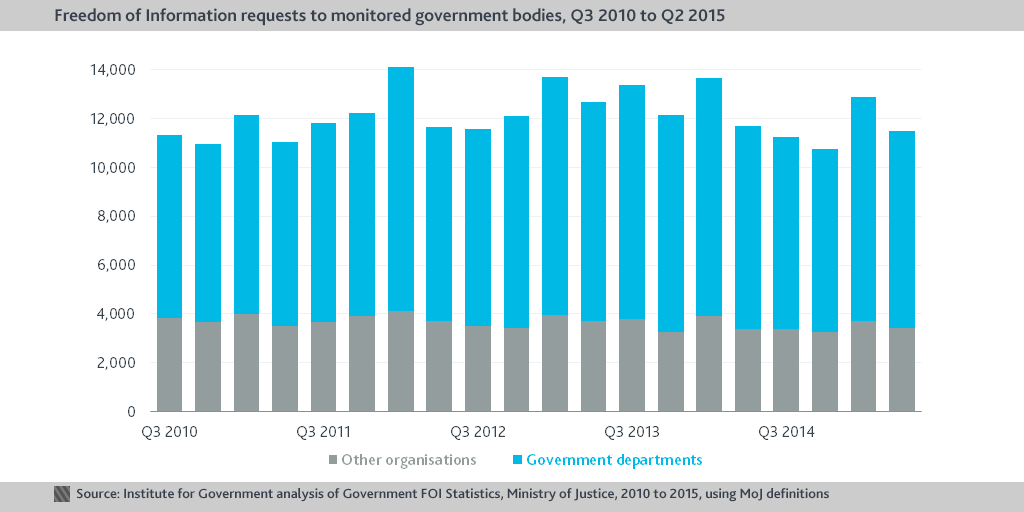
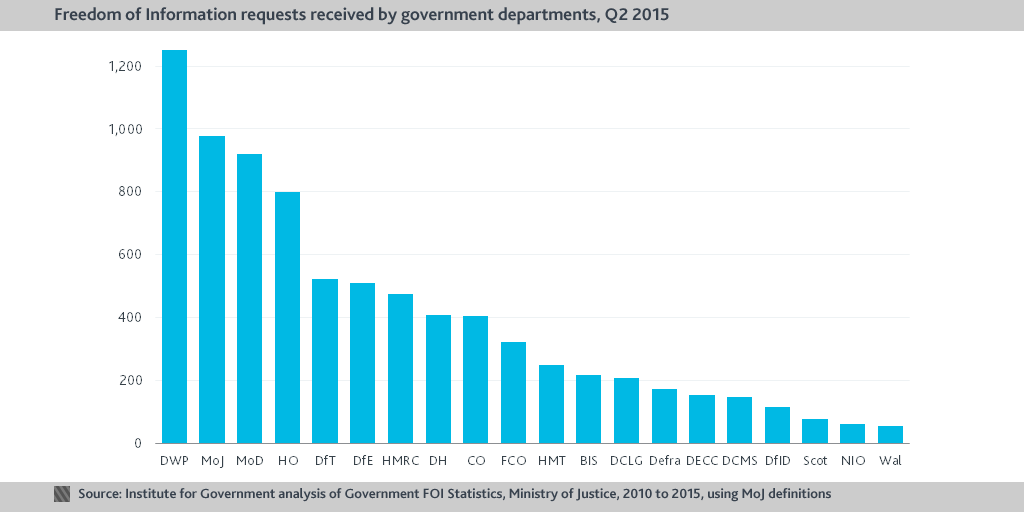
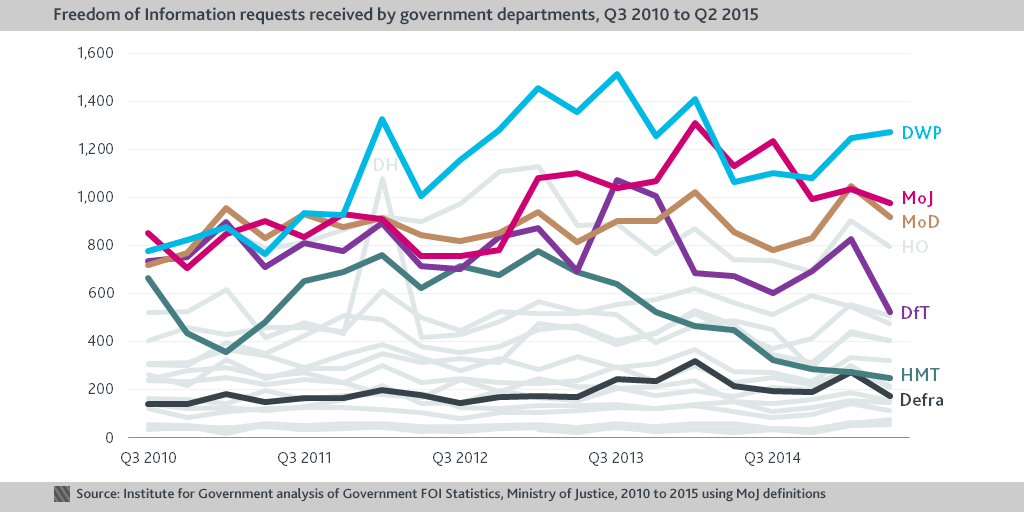
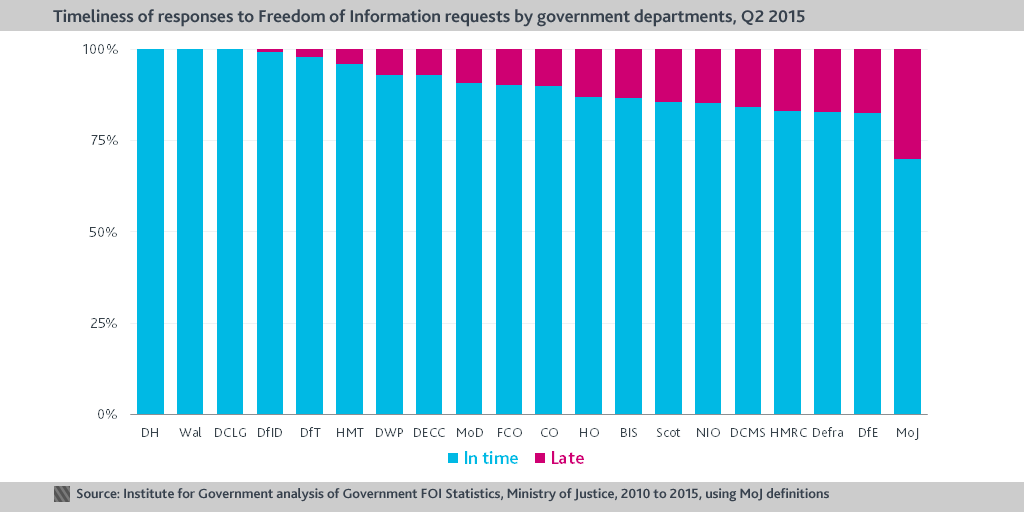
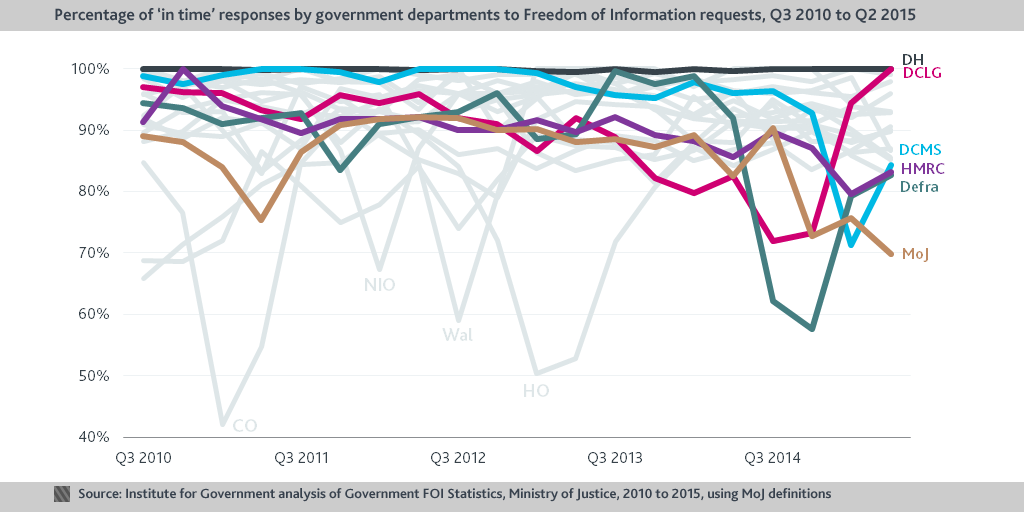
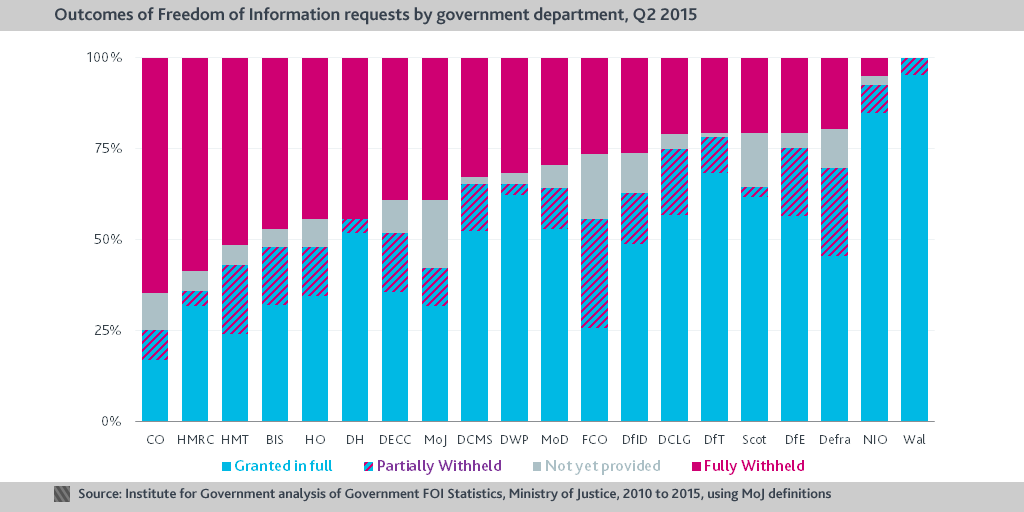
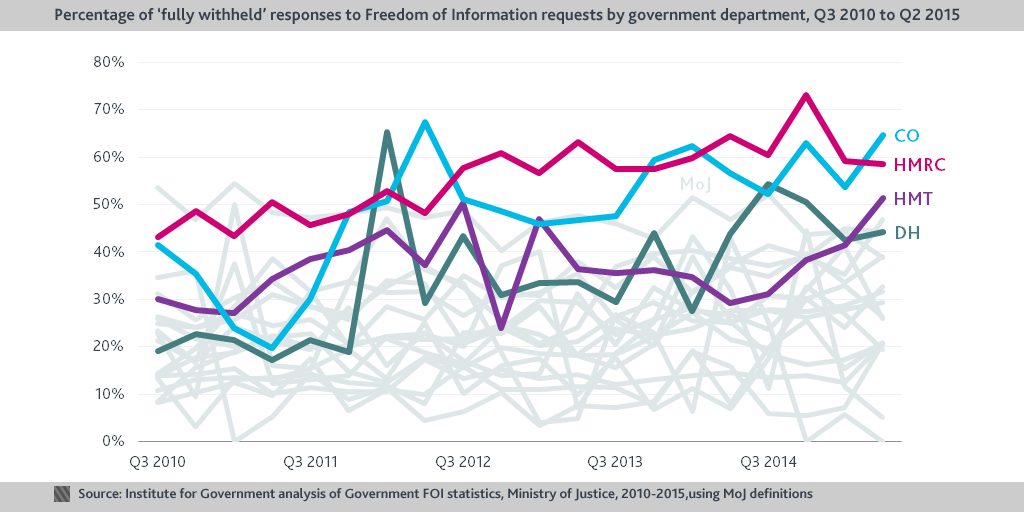
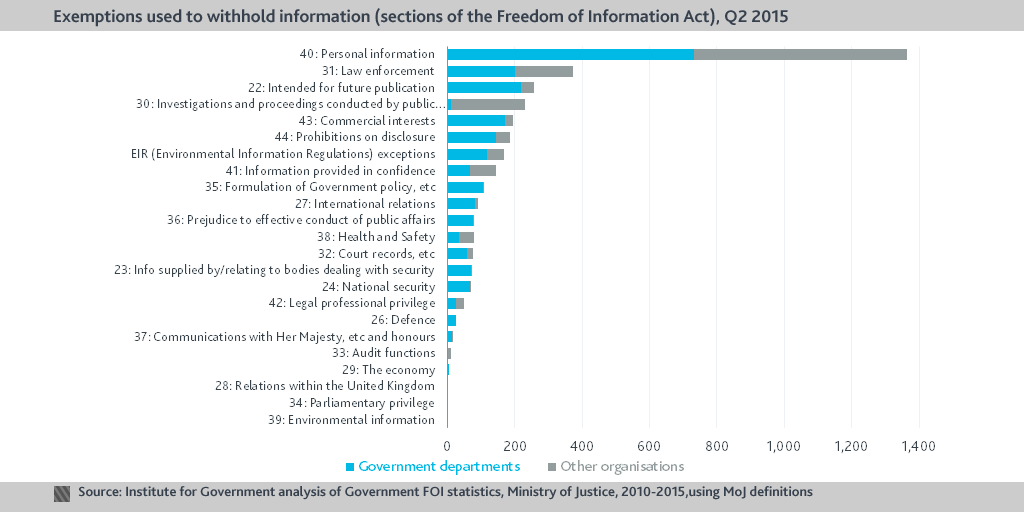
- Section 40: Personal Information, which made up 49 percent of all exemptions claimed (1,363 requests)
- Section 31: Law Enforcement, which made up 13 percent of all exemptions claimed (373 requests).
- Section 22: Information intended for future publication, which made up 9 percent of all exemptions claimed (258 requests)
This was the first quarter of data released that allows us to begin to look at the new Government’s handling of FoI. With the report of the Commission on Freedom of Information due in November, Whitehall Monitor will continue to analyse departments’ records, including the effects of any changes to the FoI regime.
Abbreviations for Government departments can be found here.
- Topic
- Civil service Policy making
- Administration
- Cameron government
- Publisher
- Institute for Government